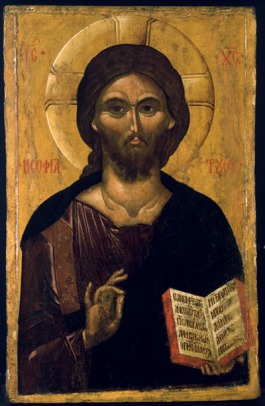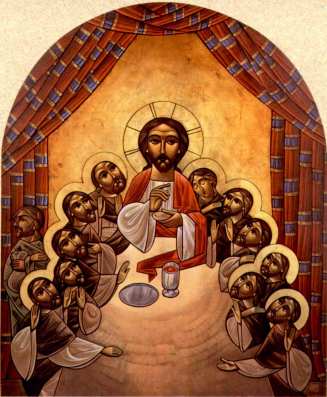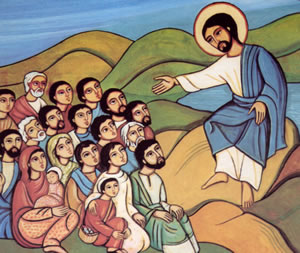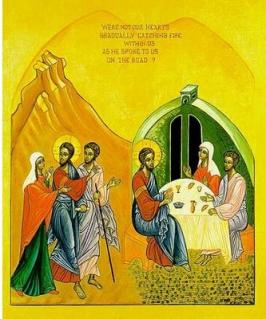Preached at St. Cuthbert’s Leaside on the Twelfth Sunday after Pentecost, August 16th, 2015.
Summer Ephesians Series: Ephesians 5:15-20
“Look carefully then how you walk, not as unwise people but as wise,” (Ephesians 5:15).
I want us to reflect this morning on wisdom and what it means to walk wisely. “Look carefully then how you walk, not as unwise people but as wise,” writes Paul. What is this wisdom that Paul refers to? And, moreover, how do we attain it? Well, allow me to give you the answer upfront: “You can’t get the wisdom you need simply by digging up more facts. You get it by worshipping the God whose facts they are,” (NT Wright).
To Paul’s Jewish readers, talk of wisdom would have rung familiar, for it is a theme that runs through the Old Testament. Essentially, wisdom in early Judaism can be summed up as a longing to know the will of God which gives life its true orientation and thus results in blessing. Recall our Old Testament reading moments ago wherein Solomon asks the LORD for, “an understanding mind to govern your people, able to discern between good and evil,” (1 Kings 3:5, 9). To which the LORD responds, “Indeed I give you a wise and discerning mind…If you will walk in my ways, keeping my statutes and my commandments, as your father David walked, then I will lengthen your life,” (1 Kings 2:14). Wisdom is this desire to know God’s will, to discern what is good in all areas of life.
One other thing we should know about wisdom in the Old Testament is that it was later personified. From Proverbs: “Does not wisdom call, and does not understanding raise her voice?” (8:1). In fact, Lady Wisdom speaks: “And now, my children, listen to me: happy are those who keep my ways…For whoever finds me finds life and obtains favor from the LORD; but those who miss me injure themselves; all who hate me love death,” (8:32, 35-6). Love of wisdom is life; hatred of wisdom is death.
Now let’s fast forward a wee bit to the early Church. Listen to how Paul and the earliest Christians spoke about the risen Jesus: “I want you to have the knowledge of God’s mystery, that is, Christ himself, in whom are hidden all the treasures of wisdom and knowledge,” (Col 2:2-3). Listen also, how they spoke of the gospel of Jesus: “But we speak God’s wisdom, secret and hidden, which God decreed before the ages for our glory,” (1 Cor 2:7). And here again, more explicitly: “Christ the power of God and the wisdom of God,” (1 Cor 1:24). Here’s the point:
As the early Christians drew together all of these threads of wisdom from the treasure-house of the Old Testament they found, and we with them, that the rich tapestry they form takes the shape of the Crucified One.
Christ is the wisdom of God. We walk in wisdom, then, by becoming like Christ. Or, as Paul put it at the beginning of Ephesians 5, “Therefore be imitators of God, as beloved children, and live in love, as Christ loved us and gave himself up for us,” (1-2). This of course begs the question, how do we become like Christ? Is this a decision we make? Be it resolved: today I am going to be like Christ. I want to suggest rather, to quote St. Clare of Assisi, that we become what we love; who we love shapes what we become. If we’re still tracking together, we can see that the logic works like this then: wisdom begins with worship.
Of course, worship is the primary task of the church. Above all else, we are first-and-foremost a community which worships Jesus Christ in Spirit and in truth. But how do we come to know the risen Jesus Christ, that we might love and worship him? I want to suggest that it is primarily through the Bible that we come to know Jesus in this way. And yes, no doubt, we read the Bible communally every Sunday when we gather for worship—our whole liturgy is steeped in Scripture. But what I want to leave us with this morning is the importance of individually immersing ourselves in the Scriptures as a way of nurturing our faith and love of Christ, and thus as the primary way in which we learn to walk in wisdom.
As it happens, this is one area where Western Anglicans have been traditionally weak in modern times—Biblical literacy. I sometimes wonder why this is? Do we shy away from a life devoted to the Bible because we think that’s reserved for the crazy uncle of the Christian family—fundamentalists? Or, perhaps it’s because we think, rightly, that the Bible is a challenging book to read. Boring, even! Whatever the case, here is the great irony: at the very heart of the Anglican tradition is a desire for people all over the world to have access to the Bible in a language that they can understand. The Anglican church is all about this!
At one point in Ephesians when Paul is talking about the mystery of Christ he says, “In former generations this mystery was not made known to humankind, as it has now been revealed to his holy apostles and prophets by the Spirit,” (3:5). The gospel of Jesus Christ has been revealed to Christ’s holy apostles and prophets. This is another way of talking about the Bible—the teaching of the holy apostles and prophets as handed down to us. And while Paul likely didn’t have the New Testament in mind the point certainly applies: we come to know—and love and worship—Jesus Christ as we read the Bible with the help of the Holy Spirit and the whole Church. This is why, about 300 years after Paul, Saint Jerome can say, “Ignorance of Scripture is ignorance of Christ.”
We cannot know Jesus Christ apart from the deposit of faith that we have in the Bible.
Moreover, the only way to make sense of the Christian life is to be ever more deeply rooted and grounded in Jesus. And we become just so deeply rooted as we immerse ourselves in a prayerful reading of the Bible, both communally and individually. Those of you who know the Book of Common Prayer will be familiar with Cramner’s exhortation to “read, mark, learn and inwardly digest” the Holy Scriptures. We simply cannot attempt to inhabit the divine wisdom which overcomes the world apart from this.
A friend of mine wrote recently, “Your responsibility to your own faith, your own cultivation of it, your own openness to its vigour and truth, your life with God, is your greatest gift of love to another person, to any person, to all those around you,” (Ephraim Radner). Here we see that our own cultivation of our own faith is not just for our own good but for the good of our neighbour, for the good of our child or our spouse, for the good of the world. That is to say, our life as a people immersed in the Scriptures is always for the sake of mission.
“Look carefully then how you walk,” writes Paul, “not as unwise people but as wise.” Wherever you are and whatever it is that you put your hand to, when it comes to walking in wisdom, when it comes to understanding the will of the Lord and discerning what is good and beautiful and true, we cannot do this as Christians apart from discovering Jesus Christ in Holy Scripture. Would you consider committing yourself, in whatever capacity you are able, to the reading of the Bible consistently over time? With the help of the Holy Spirit you will be challenged, prodded, made uncomfortable and at other times comforted and encouraged. You will know that from birth to death your life is in the hands of God and thus every single aspect of your life is filled with His presence and divine purpose—and you will learn what to do. You will discover that your faith is actually part of a much larger story, beginning with Israel and culminating in Christ Jesus and his Church. Most of all, I hope, you will come to see Christ in new and fresh ways as his light and love penetrate your heart and mind.
“Your word is a lamp to my feet and a light to my path,” writes the Psalmist. Indeed, may the light of God’s word lighten our path as we learn to daily walk in wisdom with Jesus Christ our Lord. Amen.



